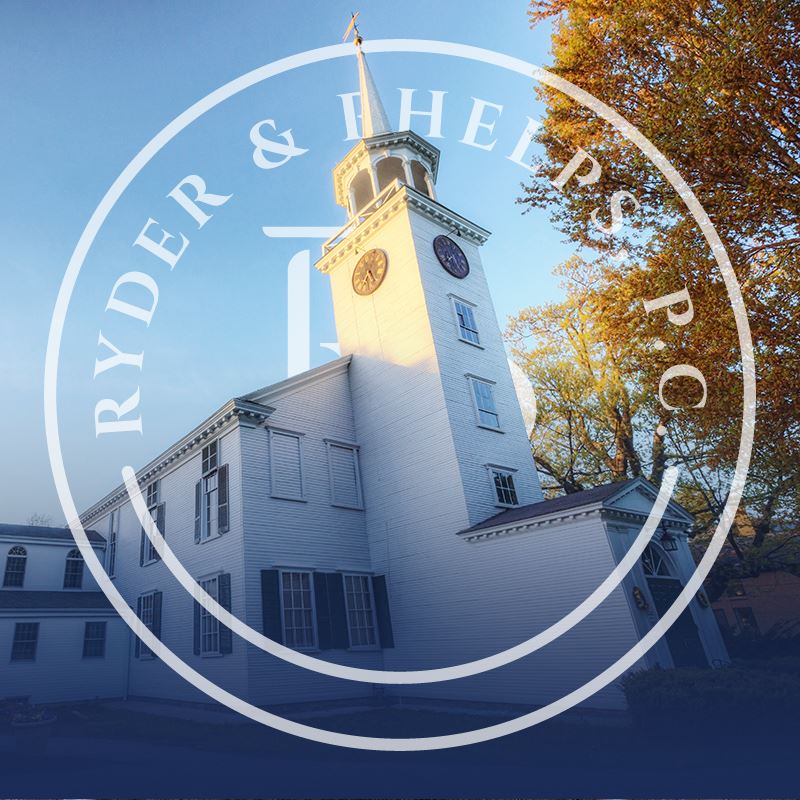
Child Custody & Paternity
Westford Child Custody Attorney
Legal Support for Child Custody and Paternity in Massachusetts
Child custody and visitation is often an emotional and difficult issue for parents in divorce as well as in post-divorce situations. It also arises as an issue for unmarried parents in paternity actions where a father must prove his parentage to seek any type of custody arrangements for his biological child..jpeg)
If you are seeking or contesting custody, whether through a divorce or after a paternity case, or later after custody orders have been issued by the court, we strongly urge you to seek representation from a Westford family law attorney who is experienced in these matters.
Committed to Achieving the Best Outcomes in Paternity and Custody Matters
At Ryder & Phelps, P.C., our team of family lawyers has the experience and dedication you need in seeking the best possible outcome for your case. It is important to understand that courts operate on the policy of resolving parenting issues based on the best interests of the child, as opposed to the wishes of the parents.
Our team understands this principle because Attorney Ryder has routinely acted as a Guardian ad Litem working to discover and advise courts as to the best interest of children throughout her career. This experience gives our law firm a unique advantage in working with parents in resolving custody issues, whether through negotiation, mediation, or litigation.
Contact Ryder & Phelps for a Confidential Consultation with our Westford child custody & paternity attorneys via our website or by calling .
Prioritizing Your Child's Best Interests in Custody and Paternity Cases
When it comes to child custody and paternity cases, the most important factor is always the well-being and best interests of the child. At Ryder & Phelps, our dedicated team of lawyers is committed to advocating for the rights of both parents while prioritizing the needs of the child.
Our experienced attorneys understand the complexities of child custody and paternity laws in Massachusetts and will work tirelessly to ensure that your rights as a parent are protected. We are here to guide you through the legal process, provide compassionate support, and fight for the best possible outcome for your case.
Whether you are facing a custody dispute or need assistance in establishing paternity, our team is ready to provide the legal representation and guidance you need. Contact us today to schedule a consultation and take the first step towards protecting your child's future.
Navigating Paternity and Custody in Westford, MA
In Westford, MA, navigating the complexities of paternity and child custody can be particularly challenging for parents. Local resources, such as the Westford Town Hall and the Massachusetts Department of Revenue, provide essential information and support for families dealing with these sensitive issues. Understanding the local legal landscape is crucial, especially when it comes to establishing paternity and securing custody rights.
Many parents in Westford face common pain points, such as uncertainty about their rights and the emotional toll of custody disputes. Whether you are an unmarried father seeking to establish paternity or a parent navigating a custody battle, it’s vital to have a clear understanding of Massachusetts laws and how they apply to your situation. The local courts prioritize the best interests of the child, which can sometimes feel overwhelming for parents trying to advocate for their rights.
The Different Types of Child Custody in Westford
When navigating child custody matters, it's crucial to understand the various types of custody arrangements that can be established. Each type serves a different purpose and can greatly impact your family's dynamics. At Ryder & Phelps, we are committed to providing you with the knowledge and guidance you need to make informed decisions regarding your child’s future.
Here are the main types of child custody you should be aware of:
- Physical Custody: This refers to where the child lives and who takes care of them on a day-to-day basis. Physical custody can be sole (one parent) or joint (both parents share time with the child).
- Legal Custody: Legal custody involves the right to make important decisions about the child's upbringing, including education, healthcare, and religious upbringing. Like physical custody, this can also be sole or joint.
- Joint Custody: Joint custody arrangements allow both parents to share responsibilities and decision-making for their child, fostering cooperation and communication.
- Sole Custody: In sole custody arrangements, one parent has the exclusive right to make decisions for the child and is primarily responsible for their care.
Understanding these distinctions can help you articulate your preferences and concerns during negotiations or court proceedings. Our experienced attorneys at Ryder & Phelps are here to help you navigate these complexities and advocate for the custody arrangement that best serves your child's needs.
Is Ma a 50/50 Custody State?
No, Massachusetts is not a 50/50 custody state. Massachusetts is an equitable division state, meaning judges will try to split property equitably during a divorce. Massachusetts courts also view parental responsibilities as gender-neutral, and final custody arrangements are always based on the best interests of the child.
Both parents have the right to seek custody of their children and child custody arrangements are not based on gender, lifestyle, or one’s religion.
How Can a Mother Get Full Custody in Massachusetts?
A mother must petition the court system to get sole custody in Massachusetts. The mother must provide reasons why she should be the sole custodian of the child, including why her partner is unfit or a danger to the child.
Mothers are not given favor over fathers when the courts are determining child custody arrangements.
The Importance of Establishing Paternity for Unmarried Fathers in MA
Unmarried mothers are given automatic custody of their children. Unmarried fathers have no custody rights unless they establish paternity after which they must file a separate action to seek legal/physical rights to their children through the courts.


-
“It was a pleasure working with Jordan and the firm” - Megan
-
“10/10 would recommend Ryder and Phelps!” - Paul B.
-
“Highly recommend!” - Jason H.
How is Custody Determined in Massachusetts?
If you and your spouse can agree on legal and physical custody, you can create your own parenting plan and present it to the court. Courts will generally approve of such plans unless they find them in violation of the child’s best interests.
What is Included in a Parenting Plan?
These plans generally include:
- Visitation schedule
- Laying out the time spent with each parent
- Determining how holidays, vacations, and other special events will be handled
- How parents will decide on the legal issues of education, healthcare, and more
- How parents will resolve any custody disagreements
Determining Factors for Court Ruled Custody Plans
If parents cannot agree on custody, the court will make a ruling on the matter after considering many factors.
These factors can include but are not limited to:
- Each parent’s ability to provide a stable home environment and provide for the child
- Each parent’s relationship with the child
- How custody arrangements will affect the child’s daycare or schooling, social, and community activities
- Each parent’s willingness and ability to cooperate with the other and to encourage the child’s relationship with the other
- Each parent’s moral fitness and mental, and physical health
- Any other relevant factor
Our law firm can help you negotiate or mediate a fair custody arrangement that will align with the child’s best interests. If these methods fail, we can prepare and present your case for custody before the judge in court hearings.

